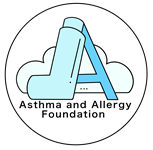ASTHMA INFORMATION
Asthma information & resources
We provide evidence-based health information on asthma. We believe when people with asthma, their families and carers have access to health information that is reliable, they would be better equipped to manage their asthma and keep their symptoms well controlled.
ASTHMA AWARENESS ANIMATION
ASTHMA AWARENESS TRAINING
WHAT TO DO IN AN ASTHMA ATTACK
The meaning of asthma
Why asthma happens
Asthma research
Asthma treatment
Is there a cure for asthma?
Importance of education
Asthma deaths in the UK
My role
Asthma is long-term common condition where the airways in the lungs become inflamed and narrow. Inflamed airways can become twitchy and narrow in response to a wide range of triggers, making breathing difficult. Symptoms vary widely from person to person and from situation to situation. Every day, three people die from Asthma in the UK. Most of these deaths, however, could have been prevented with proper education and management.
Our goal is to provide you with the latest information on Asthma. After all, the more you know about Asthma, the better you can control it. With this information, no matter the kind of symptoms you experience or how long you’ve had Asthma – you’ll soon be able to enjoy life to the fullest.
What is Asthma?
The medical definition of Asthma is simple, but the condition itself is quite complex. Doctors define Asthma as a “chronic inflammatory disease of the airway” that causes the following symptoms:
- Cough
- Wheeze
- Tight Chest
- Shortness of breath
Asthma has no set pattern, it’s symptoms:
- Can be mild, moderate or severe.
- Can vary from person to person, can flare up from time to time and then not appear for long periods of time
- Can vary from one episode to the next
- The cause of Asthma is not known, and currently there is no cure, however, there are many things you can do so you can live well with Asthma.
Breathing: Normal airways vs Asthma Airways. In someone with normal lung function, air is inhaled through the nose and mouth. It passes through the Trachea (also called the windpipe) before moving into the Bronchi (large airways), which are branching tubes leading away from the Trachea. The Bronchi branch into smaller tubes, and very small sacs called alveoli. It’s in the alveoli that oxygen, which the body needs, is passed to the blood, while carbon dioxide, which the body doesn’t, is removed from it.

People with Asthma often have trouble breathing when they are in the presence of what is called a “trigger”. When someone with Asthma has symptoms, it means that the flow of air is obstructed as it passes in and out of the lungs. This happens because of one of the following: The lining of the airways become inflamed (irritated, reddened, swollen), and may produce more mucous. The more inflammation the more sensitive the airways become there by resulting in less air passing in and out of the lungs.
The muscles that surround the airways become sensitive and start to twitch and tighten, causing the airways to narrow. This usually occurs if the inflammation is not treated.
Both factors cause the airways to narrow, making it difficult for air to pass in and out of them.
The airways of someone with asthma are inflamed, to some degree all the time. The more inflamed the airway the more sensitive the airway becomes. This leads to breathing difficulty.
Asthma can affect anyone
Asthma is a chronic condition, meaning it needs to be monitored and controlled over a lifetime. Anyone can develop Asthma at any stage in their lives. Although it is commonly diagnosed in young people. Currently, 5.4 million people in the UK have Asthma.
Living with Asthma
Most people with Asthma can live full active lives, the trick is learning how to keep your Asthma well controlled and minimize symptoms. If you have Asthma, you can control it:
- By avoiding known Asthma triggers
- By taking your medication
- Through Asthma education by your healthcare provider or support organisations.
- By following an Asthma action plan. We provide up-to-date information on asthma, which is developed by a team of medical professionals.
To request an asthma pack please email healthpromotion@asthmaandallergy.org.uk
External Links
CHSS – My lungs my life
Asthma
I have asthma
http://mylungsmylife.org/topics/i-have-asthma
My Child Has Asthma
http://mylungsmylife.org/topics/my-child-has-asthma/
NHS Choices Links
Asthma
http://www.nhs.uk/Conditions/Asthma/Pages/Introduction.aspx
Asthma in Pregnancy
http://www.nhs.uk/conditions/pregnancy-and-baby/pages/asthma-pregnant.aspx
Travelling with asthma
http://www.nhs.uk/Livewell/travelhealth/Pages/travelling-with-asthma.aspx
Asthma research
Asthma affects 5.4 million people in the UK, 368,000 people Scotland, including 72,000 children and about 35,000 people in the Grampian area.
One child is admitted to hospital every 20 minutes for an asthma attack, and 75% of hospital admissions for asthma are avoidable.
Every day 3 people die from an asthma attack and 90% of these deaths are preventable.
At Asthma and Allergy Foundation, we are working tirelessly to change this.
Trustees of W. S Sutherland Trust recently passed on their assets to Asthma and Allergy Foundation for use towards Asthma Research that would help relieve the suffering of people with asthma in the Highlands and across Scotland. The organisation is currently working in collaboration with the University of Aberdeen towards asthma research and are looking for sponsors to make this vital work possible.




